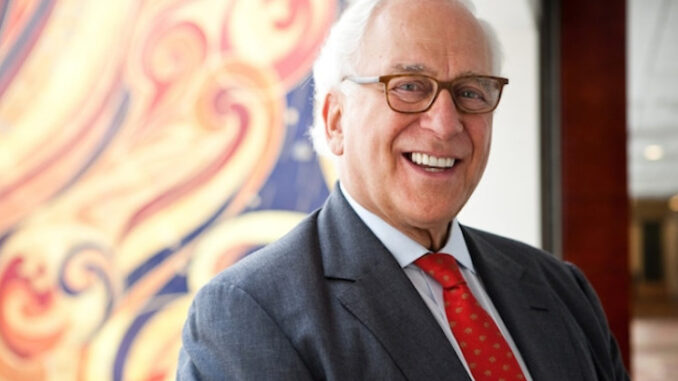
Evelyn de Rothschild, who was reported to be one of Jeffrey Epstein’s handlers, died Nov. 7 at his home in London. He was 91.
Mr. de Rothschild carried on the traditions of the Rothschild network, dating to the 1760s, that helped finance global wars and arranged for Britain’s 1875 acquisition of a stake in the Suez Canal.

BYPASS THE CENSORS
Sign up to get unfiltered news delivered straight to your inbox.
You can unsubscribe any time. By subscribing you agree to our Terms of Use
Latest Video
Wsj.com reports: Rather than charging into high-risk trading ventures like other investment banks, he kept the focus largely on discreet advisory services and reaped profits by helping Margaret Thatcher privatize state-owned companies in the 1980s.
He also served as a financial adviser to Queen Elizabeth II and owned a stake in the Economist magazine.
The banking dynasty’s founder, Mayer Amschel Rothschild of Frankfurt, a Jewish dealer in rare coins, began making loans and cultivating a highborn clientele in the 18th century. His banking business flourished, and he dispatched his sons to set up sister banks in London, Paris, Vienna and Naples. During the Napoleonic Wars, the London branch smuggled gold across the English Channel to finance the Duke of Wellington’s troops.
In recent times, Rothschild & Co. has remained a strong contender in investment banking, especially in advice on mergers and acquisitions. So far this year, Rothschild ranks eighth in terms of investment-banking revenue in Europe, the Middle East and Africa, according to Dealogic. In terms of M&A revenue, it ranks third.
Evelyn Robert Adrian de Rothschild, born Aug. 29, 1931, was the son of Anthony Gustav de Rothschild and the former Yvonne Cahen d’Anvers, of the Bischoffsheim banking family. The family lived in London and at Ascott, a country estate in Buckinghamshire featuring collections of books, paintings and Chinese porcelain.
As a boy during World War II, Evelyn was evacuated to live for several years in the U.S. and operated the soda fountain at a Long Island drugstore. After returning to England, he attended the Harrow boarding school and studied at Trinity College, Cambridge. He left Cambridge without graduating and, the Times of London reported, said he didn’t remember why he had dropped out.
His early enthusiasms included horse racing and polo. After his father died in 1961, he dedicated himself to preserving the family business. At the time, N.M. Rothschild was still a major player in precious metals and hosted a daily ritual in which dealers used miniature Union Jack flags as signals while setting the price of gold.
In the late 1970s, Mr. de Rothschild clashed with another cousin, Jacob Rothschild, who was seeking a larger and broader scale for the family business. At the time, Jacob Rothschild ran Rothschild Investment Trust and was seeking to expand it aggressively. “Two Rothschilds on the scene gives rise to utter confusion,” Evelyn de Rothschild declared in 1980. The cousins eventually settled their differences.
“We didn’t want to change the way that the bank was moving, other than to try to [ensure the] quality of the work and open branches in different parts of the world—Singapore, China, Australia,” Mr. de Rothschild told the Financial Times in 2017. During his period as chairman, the bank’s number of offices worldwide grew to more than 50 from 15.
In 2000, he married Lynn Forester, a lawyer and telecommunications entrepreneur who graduated from Pomona College and Columbia University’s law school. She survives him. Two earlier marriages ended in divorce. His survivors also include three children.
He owned thoroughbred racehorses and co-founded Elephant Family, an organization that seeks to conserve Asian wildlife. He also donated to medical research, education and the arts.
In retirement, Mr. de Rothschild indulged his love of chocolate by briefly owning high-end confectionery and tea shops called R Chocolate in London. “I used to be a banker but I’m glad I’m not any more,” he told the Mail newspaper in 2017 in an interview promoting his chocolate. “I don’t think banking is as amusing as it was, and I don’t think banks have behaved all that well.”


